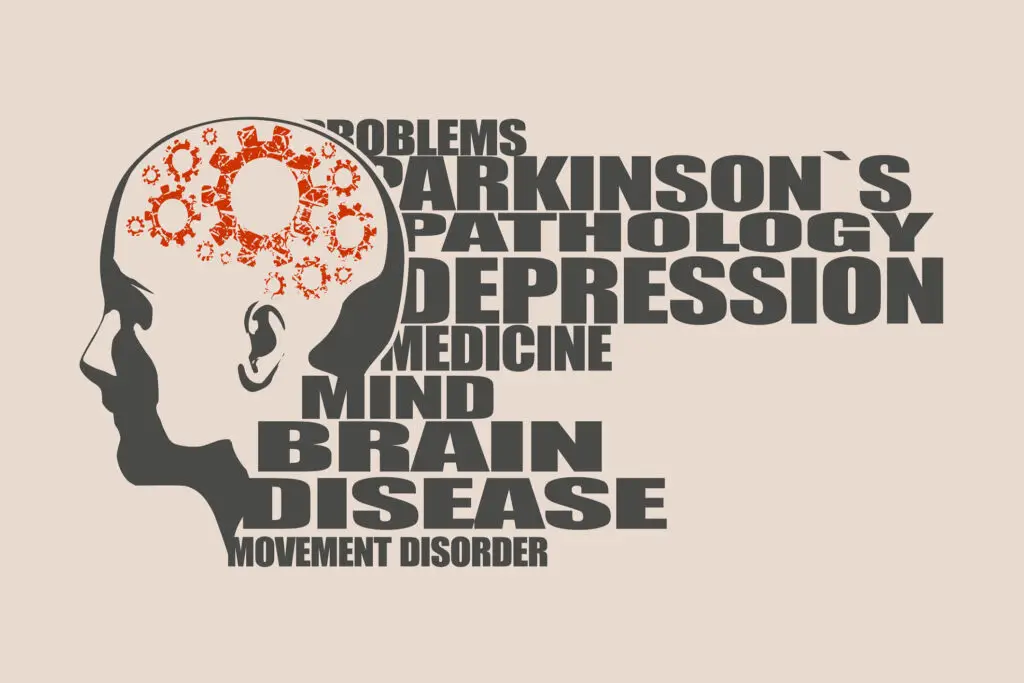Parkinson’s Disease is unfortunately a common degenerative brain disorder, second to Alzheimer’s Disease. Parkinson’s Disease (PD) affects more Men than woman, in all ethnic groups, averaging around the age of 60 to begin. Symptoms are often seen as stiffness and rigidity, tremors, and/or constant shaking, slowness with movement, and inconsistent balance. Due to the nature of these symptoms, people with PD are at a higher risk of falling and breaking their bones. Treatment usually includes medication and physical therapy with some cases, surgery may be required.
Parkinson’s disease is related to a loss of nerve cells in your brain that produce a chemical called dopamine, which is an important factor in controlling movement. While the exact cause of Parkinson’s Disease is unknown, genetic history, aging, and exposure to unknown environmental toxins may contribute to the onset of PD. Parkinson’s Disease is a chronic degenerative disease, meaning it gets worse over time; however, people usually do not die from PD.
The symptoms of PD can begin subtly in the beginning. A common early symptom is a tremor in one hand, often when you aren’t entertaining an activity. Some Medical Professionals have said it may look like you are rolling a pill between your thumb and forefinger. Tremors also can occur in your legs or jaw when you’re resting. Since the tremors are most apparent during rest, they usually go away when moving and typically don’t interfere substantially with daily function. Other symptoms of Parkinson’s Disease may include:
- Your movements may become smaller, possibly resulting in:
- shuffling when you walk, end of a sentence.
- arms swinging less when you walk, and
- your handwriting trailing off at the end of a sentence.
- You may develop a feeling of stiffness or rigidity in your muscles, causing discomfort in your neck, trunk, or shoulders.
- You may have postural instability, resulting in poor balance and a greater risk of falling.
- Your movements may become slower when doing daily activities such as dressing, showering, or moving in bed.
- You might feel as though your feet “freeze” to the floor, making it hard to take a first step.
- You may develop a stooped posture.
- You may find it physically difficult to speak loudly.
- Family and friends might notice that you show less expression in your face.
People with PD are often prescribed Physical Therapy as treatment to help you manage your your symptoms to interfere as less as possible with your daily life. Your SportsCare Physical Therapist treatment plan will be developed after an extensive evaluation by your physical therapist. The examination will include many questions about how your PD affects your life. Your therapist will have tests be conducted to examine your posture, strength, flexibility, walking, balance, and coordination.
Your Therapist will help you stay as active and as independent as much as possible. At SportsCare Institute, our Physical Therapists will teach you special exercises and techniques to combat the symptoms of PD. Depending on the nature and severity of your condition, your treatment program may focus on treatment to help you:
- Improve your fitness level, strength, and flexibility
- Develop more effective strategies to get in and out of bed, chairs, and cars
- Turn over in bed more easily
- Stand and turn to change directions more efficiently
- Improve the smoothness and coordination of your walking
- Improve your ability to perform hand movements
- Decrease your risk of falling
- Climb and descend stairs and curbs
- Do more than 1 task at a time more efficiently
- Participate in activities that are important to you
At SportsCare Institute, we strive to put forth the best knowledge and treatment to each and every one of our patients, to allow them the best quality of life possible. Contact your local SportsCare Physical Therapy location by searching here, or by texting your zip code to 1-844-700-0013.


